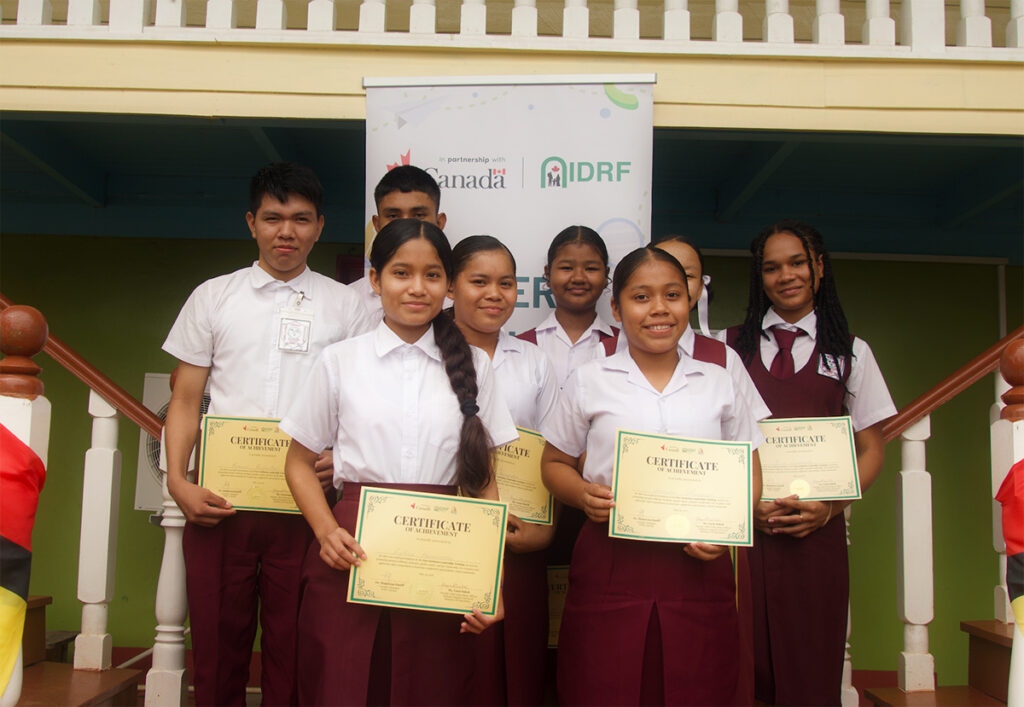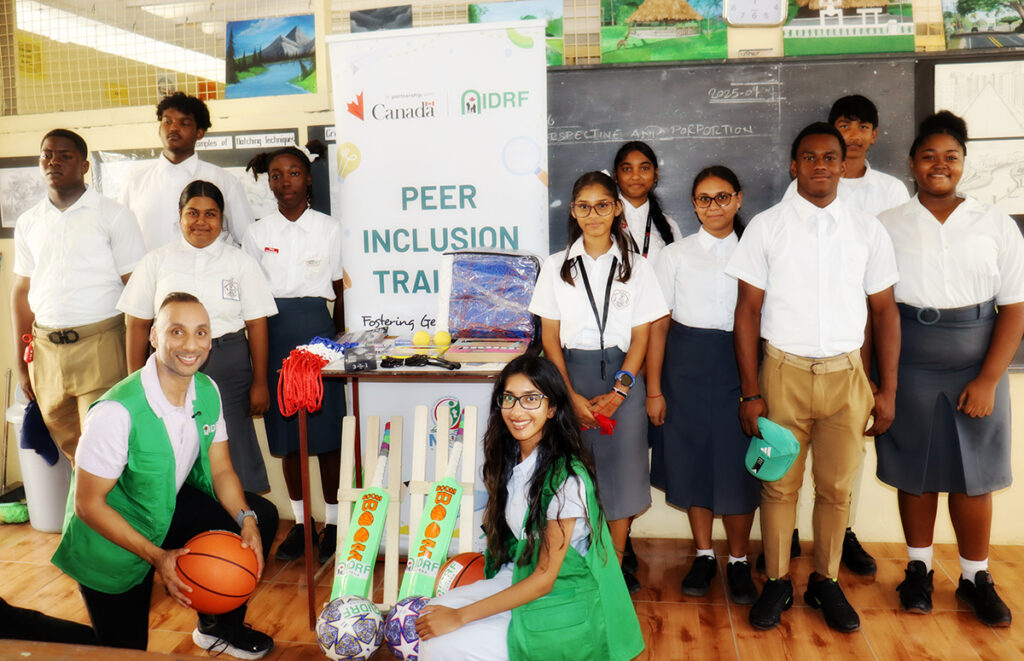Students are learning to dream big and include everyone. Through peer inclusion activities, games, and art, they’re building teamwork, leadership, and empathy—skills that will help them reach their goals and lift others along the way.
Over 150 students across 15 schools and seven regions in Guyana have been trained as Peer Inclusion Leaders under the Safeguarding the Human Dignity and Rights of Populations At-Risk (SPAR) Project, a collaborative initiative implemented with the Ministry of Education and generously supported by Global Affairs Canada.
The Peer Inclusion Trainings, conducted in May 2025, equipped students with the knowledge and tools to create safer, more welcoming school environments. The sessions emphasized inclusion, gender equality, and mental health awareness—providing practical strategies for students to support their peers, promote open dialogue, and challenge stigma surrounding mental wellbeing.

“These students are the heart of change,” said Kayla Ahmad, Program Manager at IDRF Canada. “Their leadership and empathy are helping redefine what inclusive education looks like in Guyana.”
To help Peer Inclusion Leaders bring their learning to life, the project team collaborated with students to identify materials that would best support their efforts. Their feedback guided the creation of inclusion packages featuring sports equipment, art supplies, and board and card games—tools designed to encourage teamwork, creativity, and positive social interaction. The distribution of these materials began in September 2025 and will be completed by the end of October.
During a recent visit to Guyana, Elyas Burney, IDRF’s Director of Global Programs and Social Impact joined the team for several school distributions. He expressed deep admiration for the enthusiasm of the participating students. “The commitment of these young students is vital in building more inclusive schools,” Burney said. “Their leadership and dedication to improving mental health will transform the lives of their peers in the classroom, on the playground and beyond.”

The Power of Peer Inclusion
Peer inclusion has far-reaching benefits that extend well beyond the classroom. When students feel included and supported by their peers, they are more likely to stay in school, perform better academically, and develop stronger social and emotional skills. Inclusive environments reduce bullying and isolation, helping students build confidence and a sense of belonging—key protective factors for mental wellness.
During school visits, the SPAR team not only distributed sports equipment, card games, and art materials but also discovered the children’s dreams, from aspiring actors and cricket players to students hoping to support communities in low-income countries. These aspirations align beautifully with the skills fostered through peer inclusion: empathy, collaboration, leadership, and social responsibility. By engaging in inclusive activities, students are already taking the first steps toward achieving their goals while learning the value of uplifting those around them.
By equipping students to lead with empathy and understanding, the SPAR Project, with the support of Global Affairs Canada, is helping to create school communities where every child feels valued, heard, and capable of thriving.
This milestone marks an important step toward a future where all children in Guyana can learn and grow in safe, inclusive, and nurturing environments.
